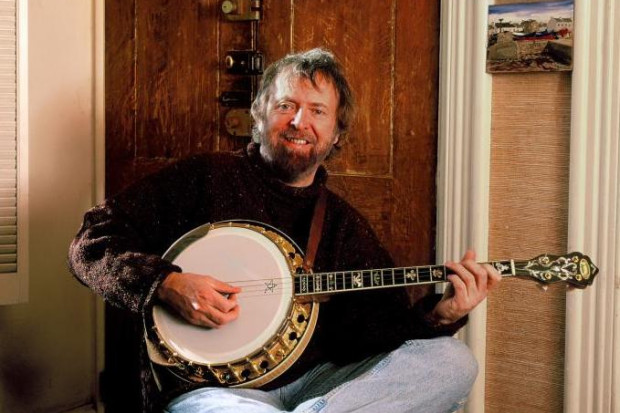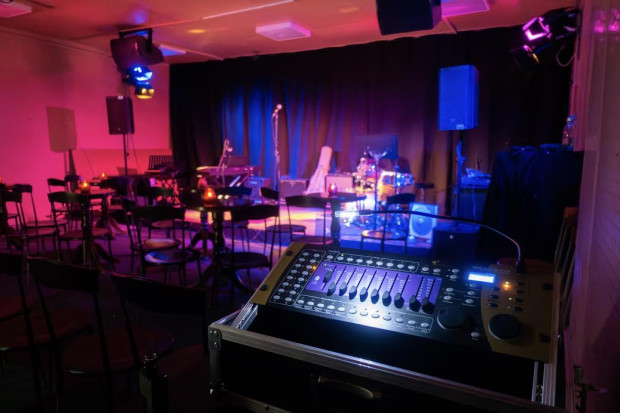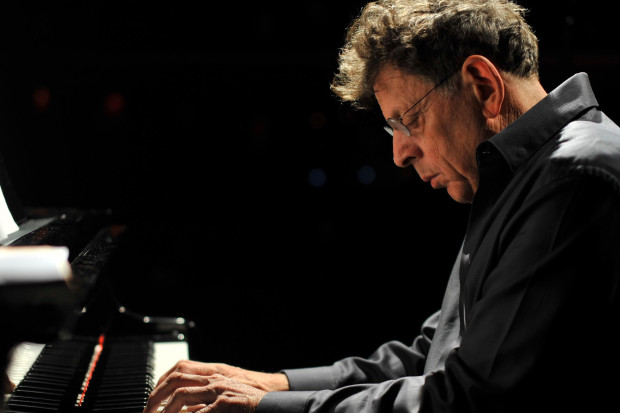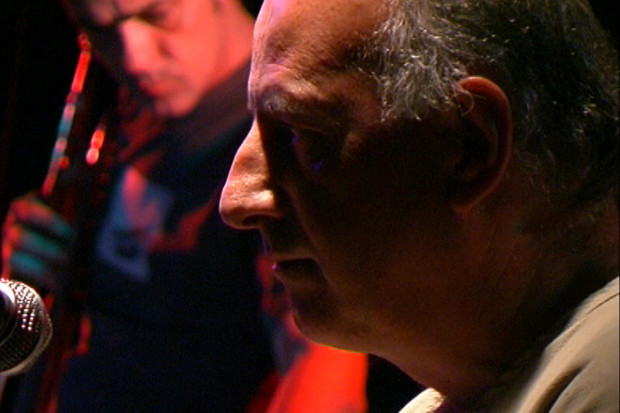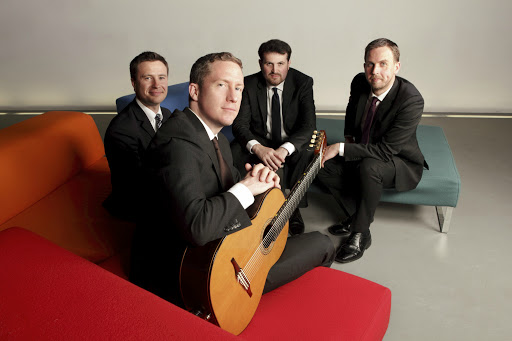
Dublin Guitar Quartet
Feeling Ownership: Brian Bolger on Arranging Philip Glass' Music for Guitars
‘Making a forte sound like a forte.’ That is one of the biggest challenges in arranging Philip Glass’ music for guitars, says Brian Bolger of the Dublin Guitar Quartet. ‘In a few spots we’ve had to multiply notes and make chords to fill things out. The opening of Buczak, Movement One, is an example of that. What was a total of four notes in the original string quartet has become ten or twelve in the guitar arrangement.’ The Dublin Guitar quartet will tour a programme of Glass’ music around Ireland from 13 September to 6 October, taking in performances in Kells, Kilkenny, Newbridge, Bray, Nenagh, Dundalk, Cork, Dublin and Sligo.
Glass’ music lends itself to transcription, says Bolger. ‘It doesn’t have the same emphasis on special timbral effects that you would find in Ligeti or Xenakis, for example. So we are able to stay fairly faithful in our transcriptions,’ he says. ‘But, as a result of the technical “limitations” of the guitar there are a few instances where we’ve had to re-imagine movements or passages in order to make them work.’ The quartet play eight-stringed guitars to be able to play more of the high and low notes. ‘We actually have a wider range than a string quartet don’t you know,’ adds Bolger.
‘I first heard Glass’ music on a listening post in Tower Records when I was about eighteen,’ says Bolger. ‘It was the opening of Koyaanisqatsi. In my ignorance, I remember thinking the low ominous bass singing with the single line organ part sounded like slow Scandinavian gothic metal and didn’t get past the first minute or so. Then years later at the Conservatory, Deborah Kelleher gave a lecture on [Glass] and played some of the busier sections of the Satyagraha opera at a decent volume. I was blown away by that and took note.’ Bolger later came across the Kronos Quartet’s collected string quartets and says that he now loves Koyaanisqatsi, Glass’ music for the 1982 film by Godfrey Reggio.
Did working with Philip Glass in person change the way the quartet played? ‘Yes,’ says Bolger, ‘but not in the way you would think. I got the impression that he is leaving a lot up to the performers. I’ve seen him rehearse with others too and interpretation choices that I guessed he wouldn’t like didn’t receive comment.’ Bolger describes Glass approach as ‘very friendly and open’ and says that the composer is ‘aware that in order for a performer to convey convincingly they need to feel like they have ownership of the music’.
‘But maybe I didn’t see him get into that sort of detail because he doesn’t really need to,’ says Bolger. ‘In terms of expression, I’ve always said that Glass’ music “makes it’s own gravy”. It’s fairly obvious what needs to be done and you don’t really have to work too hard to make it work. That’s an indication of the quality and clarity of intention of the music I think. What he has created is original but there’s a regular periodicity to the phrases and an overall structure that is rooted in tradition. So you instinctively know what to do.’
Bolger believes that performing Glass’ works as ‘flat, machine music’ is to miss the point. ‘I realised that interpreting his string quartets in the same way you would Music in Twelve Parts would be a mistake,’ he says. ‘If you were to play many of the passages in String Quartet No. 5 in that way you’d be missing the point. Obviously you can’t go nuts, but things like highlighting harmonic changes or slowing down here and there shouldn’t be out of the question.’












